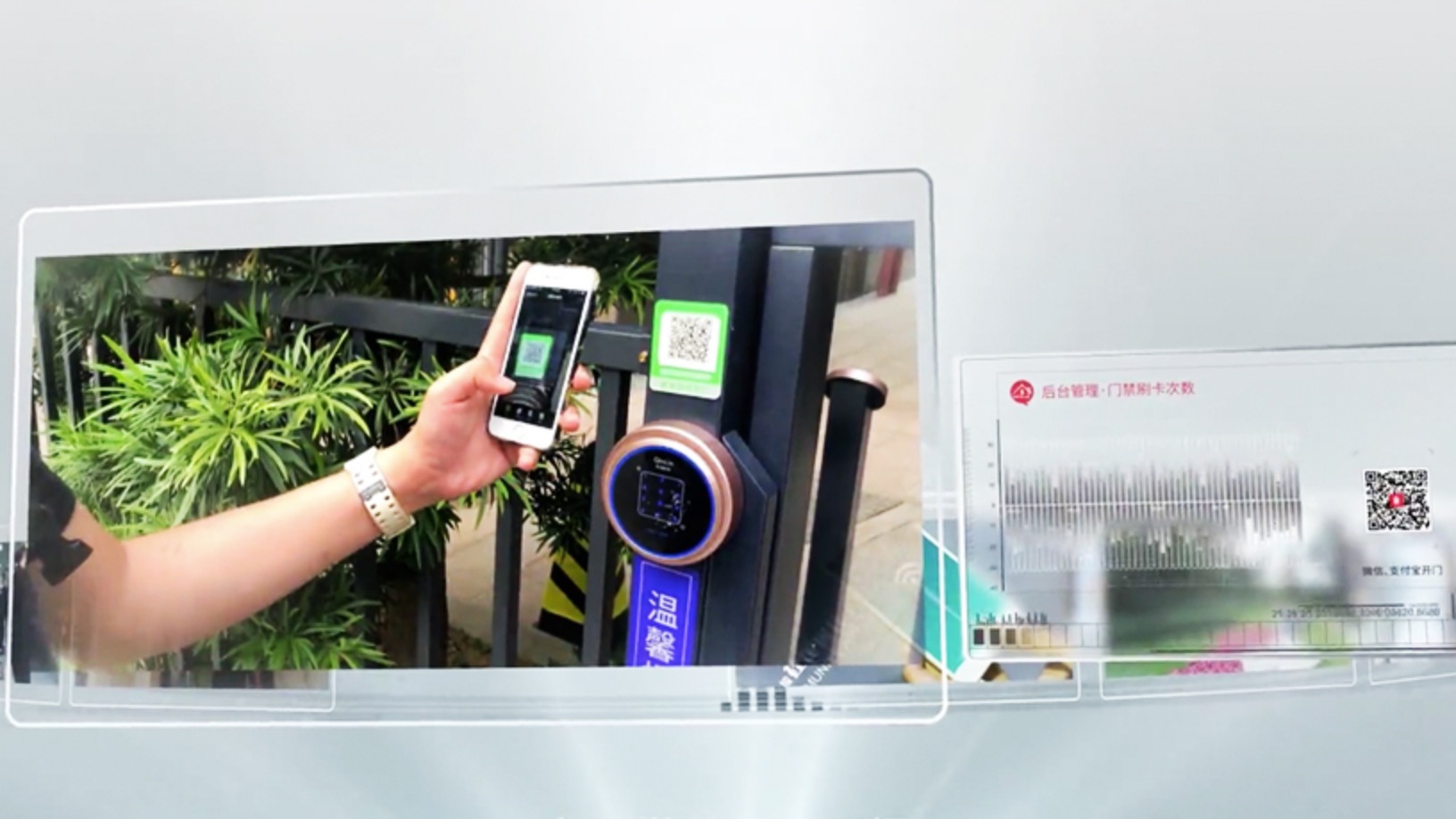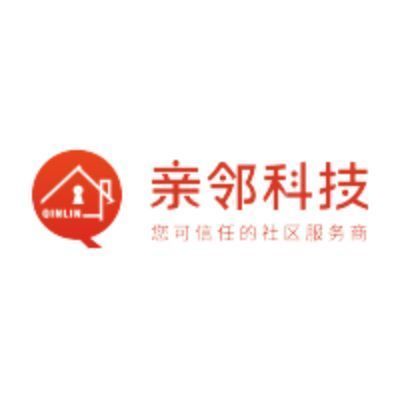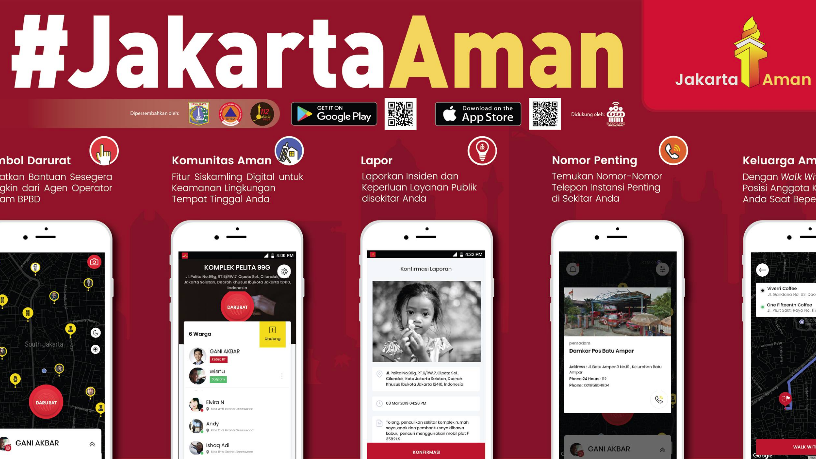Swiping a resident’s access card is daily routine for gated neighborhoods. But physical access cards are easily forgotten, lost or damaged. Security guards also spend precious time checking the identities of visitors and tradesmen making deliveries.
An opportunity to digitize the manual access card system was spotted by media and advertising guru Guan Ke. In 2015, the CEO and co-founder of QinLin Technology launched an innovative business model to property managers of gated developments. The Shenzhen-based company would provide free security access control systems financed by companies who wished to advertise their products and services to gated neighborhood residents.
Residents can use a range of access devices such as the QinLin Kaimen app, WeChat QR code, facial recognition sensors, WeChat mini-program and Near Field Communication-enabled smartphones. Hosts can also use the app to let their visitors in via remote control. The QinLin surveillance cameras can be upgraded with facial recognition features to detect safety hazards such as potential stalkers lurking in the neighborhood.
In early 2019, QinLin began working with local partners to reach out to property managers in target cities across China. The partners will initially pay a deposit for the QinLin equipment that will be fully refunded as soon as an agreed number of users is acquired. They will also get a share of the revenue generated from the ad placements and third-party services offered to the neighborhood residents.
Precision advertising opportunities
The importance of precision advertising has increased in recent years. A survey by Nielsen in 2016 showed that Chinese advertisers spent nearly 60% of their marketing budgets on improving advertising effectiveness. Almost all of them said that their primary concern was for their ads to reach targeted groups more effectively.
QinLin’s neighborhood advertising offers a more targeted marketing solution that enables advertisers and suppliers to build longer lasting relationships with specific consumer group profiles. QinLin currently works with more than 1,000 property companies that manage over 30,000 neighborhoods in over 130 cities.
In 2018, QinLin launched its media source management platform QADN for precision advertising. By aggregating data collected from registered users, the smart platform can tag the QinLin neighborhoods with over 30 characteristic labels including number of buildings, student population, occupations, age groups, personal interests and brand preferences. Advertisers can use the labels to target specific neighborhoods with residents who are most likely to buy their products.
The QADN platform also uses cloud computing to profile residents and display heat maps of different neighborhoods to enable advertisers to target desired consumer profiles more accurately. Reports are automatically produced to monitor and evaluate the effectiveness of each ad placement.
QinLin managed to break-even within two years after its launch. Annual revenue increased by 300% in 2018 and the repurchase rate of advertiser clients reached 70%. The advertisements are displayed to a daily captive audience of 340m residents through the QinLin user network at the access gates, the app and WeChat mini-program.
Targets needs of residents
However, QinLin offers more than precision marketing and has never defined itself as an advertising agency. “We are a tech-driven company with the vision of empowering our local partners and property managers,” said co-founder Wu Fang. QinLin will always put residents’ needs first.
According to Wu, the company will focus on families and those who prefer more convenient services. The aim is to serve all their needs after they return home from work, providing a full range of services that include content, neighborhood-based social networking and door-to-door services.
In March 2017, a group buying service was launched on the QinLin app and WeChat mini-program. Today, group buying is the company’s second largest revenue source, after advertising. Each day, QinLin will promote a few items like fresh produce and cleaning products for its flash sales through the app, WeChat mini-program and the WeChat groups of neighborhood residents. These products are usually offered at larger discounts than those from competitors elsewhere.
“We have a good knowledge and understanding of the neighborhoods we serve. By using big data and communicating with resident representatives and property managers, we can serve residents’ needs more precisely,” said Guan when he was asked about how QinLin differentiates itself from other group buying players.
The company also offers home cleaning, home appliance maintenance and other on-demand services. In 2018, QinLin vendors had serviced nearly 30,000 home appliances for households in over 10,000 neighborhoods. More third-party services will be added.
To facilitate real-time neighborhood management, QinLin has provided property managers with a backend management platform to monitor and store information relating to residents, visitors, employees and buildings. The neighborhood control system can also be used to issue utility bills, activity notices and announcements to relevant households. As a result, the property management employees can devote more time to engage with the residents and provide more efficient services.
The company’s mission is to build a neighborhood-based business system, said Guan in 2018.














